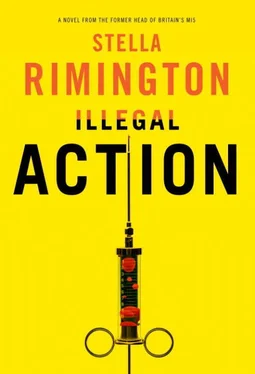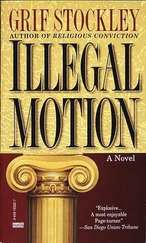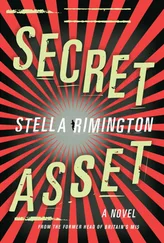Maybe, she thought, this was her chance to find something for a wedding she was going to in May, but a quick foray into Burberry on the corner of Conduit Street unearthed nothing under £500. So she decided she would do as she usually did and look in the little dress shop in Stockbridge, which she passed on her way down to her mother’s Wiltshire house. Cutting down towards Berkeley Square, her thoughts turned to her impending appointment.
Liz was using her operational cover name of Jane Falconer. She had her hair tied back and she wore a conservative grey suit, for from his CV, the man she was going to meet, Brigadier Walter Cartwright, was unmistakably traditional: Wellington, Sandhurst, four tours in Northern Ireland, active duty during the Falklands campaign, followed by command of a tank regiment during Operation Desert Storm in the first Iraq War.
He had resigned from the army soon after the Gulf campaign and begun a second career in a risk analysis/security firm of international repute. After five years he had struck out on his own, forming his eponymous consultancy. Such companies tended to divide between the cerebral, specialising in “risk analysis,” and those at the sharper end, who provided protection—for multinational corporations worried about the kidnapping of their chief executives and sometimes for people rich enough to pay someone to create an illusion of risk.
From Peggy’s briefing to Liz, it was clear the Cartwright consultancy was in the heavy category, with most of its staff ex-military. Yet it managed to mask the muscular aspects of its business by having peers of the realm among its nonexecutive directors and by situating its headquarters in the smartest part of London.
On the sixth floor of the modern block at the south end of Berkeley Square, Walter Cartwright greeted Liz with a firm handshake and a slow smile. He looked younger than his fifty or so years. He was on the near side of six feet, and wore a suit of rumpled gabardine. Only the erect way he held himself gave any indication of his military past; that, and the square outline to his shoulders.
His office overlooked Berkeley Square, though at this height the view was obscured by the early leaves on the square’s perimeter trees. The sound of the traffic was dulled and the noise of birdsong came through the window, melodious and clear. “Lovely, isn’t it?” said Cartwright. “That’s a blackbird. Not many nightingales in Berkeley Square nowadays.”
Liz pointed to a pair of watercolours on the wall, each depicting a black Labrador retrieving pheasants at a shoot. “They’re rather fine,” she said.
Cartwright chuckled. “You’re either being very polite or you’ve been well briefed. I painted them myself.”
They sat down and Cartwright looked at her with friendly curiosity. “Miss Falconer, you said you’re from the Home Office?”
“I’m actually from the Security Service.”
“Ah. MI5. I thought so. I had some contact with you chaps when I was in Ireland. Is Michael Binding still around?”
“Absolutely,” she said, hoping the brigadier didn’t share Michael Binding’s opinion of women’s professional abilities.
“And there was another man.” The brigadier scratched an eyebrow thoughtfully. “Ricky something. Nice fellow.”
“Ricky Perrins. I’m afraid he was killed in a car accident.”
“Oh I’m sorry,” said the brigadier with genuine regret, and Liz found herself warming to him. “I’d better not go on about Ireland,” he said, “or we’ll be here all day. You said you wanted to speak with me about one of our employees. Which one?”
Liz didn’t have the faintest idea of her quarry’s name, so she extracted a 10x8 black-and-white photograph from her briefcase, and handed it across the desk to the brigadier. It had been taken by A4 with a telephoto lens, enlarged and cropped to show only the mystery man on the bench.
Cartwright studied it carefully, while Liz wondered what she would do if he said he’d never seen the man before.
“Simmons,” said the brigadier, to Liz’s relief. “Jerry Simmons.”
“He works here?”
“Yes. Is this work-related?” His tone was slightly sharper.
“We don’t know yet,” admitted Liz. “That’s why I wanted to talk to you.”
“Has he done something wrong?”
“We’re not sure. We had a surveillance operation on a foreign national and saw what looked like a covert meeting with Simmons.” She pointed to the photograph. “That was taken in a remote part of Hampstead Heath.”
“Is this a hostile foreign national?”
Liz spoke carefully. “Let’s just say his country used to be hostile; its present status is unclear. We’re concerned enough to be following this man, and curious as to why he’s meeting with your employee. Can you tell me something about Simmons?”
“Of course. I’ll get his file.” Cartwright walked over to a filing cabinet in the corner of the room and pulled out a folder. “He’s from Lancashire. He left school and signed up—he was in the Paras for six years, then the SAS. Left five years ago. He seems to have made the transition to civilian life without any problems—and believe me, not all of them do. He used to be in security at the Dorchester Hotel. The people there weren’t very pleased when we lured him away, but they gave him a good reference. As far as we’re concerned, he’s worked out very well. He’s reliable, very competent.” He added, without malice, “If not precisely a mastermind.”
“What does he do for you?”
“He’s a driver and bodyguard.”
“For many different clients?”
“No,” said Cartwright with a quick shake of the head. “Our contracts are strictly long term. He’s working for a Russian named Nikita Brunovsky.”
“Why does Mr. Brunovsky need a bodyguard?”
Cartwright shrugged. “He’s one of the oligarchs. Having protection is part of their way of life. Brunovsky is comparatively restrained. Some of them have teams of people, but he relies mainly on Jerry Simmons. He doubles as chauffeur and protection.”
“Is there anything about Simmons that particularly stands out? Anything unusual?”
Cartwright reflected for a moment. “One’s always tempted to find something . Simmons has been married three times, but is that remarkable these days? I’m sure one of the reasons he left the Dorchester to come here was the money—it’s a lot better, and I had the feeling he needed it. But other than that, I can’t think of anything out of the ordinary about him.”
Then why, thought Liz, was he meeting a Russian diplomat in a remote corner of Hampstead Heath? It must have something to do with Brunovsky. “We’ll need to talk to him.”
Cartwright nodded and said, “During the day, of course, he’s usually with Brunovsky. There’s a house in Belgravia, and an estate in Sussex. But I’d rather you didn’t bother him on the job. I’ll give you Jerry’s home address and telephone. Perhaps you can take it from there.”
“Actually, I was wondering if it would be possible to meet him here. I don’t want to cause alarm before we speak to him. Or upset his family.”
“Not sure if he’s still got one,” said Cartwright, then looked again at Liz. “Would it help if I found a pretext to get him in here?”
“That would be ideal.”
“Right. Personnel can say there’s been a mix-up with his National Insurance. Something like that. Just tell me when.”
“It should be in the next few days.” Liz stood up to leave. “It will be one of my colleagues who talks to him. I’d be grateful if you wouldn’t mention my visit to anyone, especially Simmons.”
“Of course,” he said simply, and then as if to emphasise that her presence would be wiped from memory, exclaimed, “Listen to that!” Now there were two blackbirds singing, high up in the trees, creating a rich brocade of alternating song.
Читать дальше












